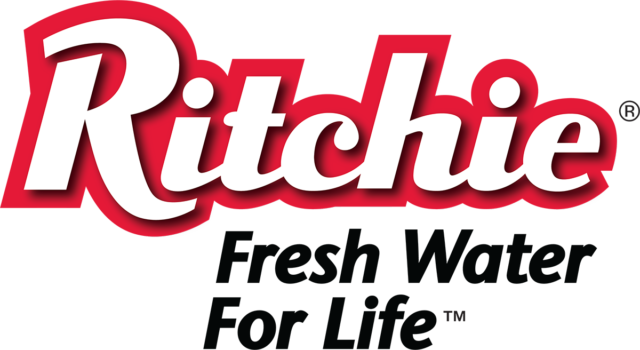Progressive Dairy Editor Kimmi Devaney sat down with Jerry Bowman, the new executive director of the American Dairy Science Association (ADSA), during the recent ADSA annual meeting in Kansas City, Missouri, to discuss his goals related to the new three-year strategic plan, benefits of attending the annual meeting and how the organization is focusing on students and international members.
ADSA is an international organization of educators, scientists and industry representatives who are committed to advancing the dairy industry and keenly aware of the vital role the dairy sciences play in fulfilling the economic, nutritive and health requirements of the world’s population.
What attracted you to the ADSA executive director role?
BOWMAN: This role is the culmination of everything I’ve done in my career up to this point, and ADSA’s vision is what brought me here. The general public needs to know where their food comes from, and dairy science is critical to that discussion to ensure they continue to have safe and nutritious dairy products. ADSA brings together the entire supply chain from a science standpoint – everything from production to dairy foods.
My background is in communications, and I previously served as the executive director of the Flavor and Extract Manufacturers Association and began my current role with ADSA in September 2021.
How would you sum up your goals for ADSA in the new three-year strategic plan?
BOWMAN: There are five key initiatives in the new strategic plan. They are designed for our members to do three things: Engage, engage and engage.
The pandemic changed many things, and this is a great time to address strategies and needs of our members in a post-pandemic world. Dairy is critical to ensuring the growing population of nearly 10 billion people will be fed, and science serves as the foundation of that discussion.
Partnerships will also be critical because we can’t do it alone to address global issues that transcend borders. Examples of partnerships include joint programming and membership.
Students and the international audience are two key parts of this, as well.
What are some benefits of attending the ADSA annual meeting for industry representatives, those in academia and others interested in dairy science?
BOWMAN: For the science behind dairy, this is the event to be at. Our programming bridges from dairy foods to production, and you can’t find that anywhere else.
The conversations and connections that happen between sessions are one of the greatest parts of the experience of being part of our dairy science community and being here at the ADSA annual meeting. Everyone who attends walks away from this meeting with actionable outcomes based on what they learned in sessions and the people they talked to, and that’s a real benefit of being here. There’s a great sense of camaraderie.
As an international organization, how do you hope to engage international attendees going forward?
BOWMAN: The international audience is a key part of the supply chain that is represented at ADSA. Transcending borders with the knowledge presented by engaging with international attendees has always been important, and that focus will continue.
What role is there for students at ADSA?
BOWMAN: Students are a top priority. They are the future, and our goal is to provide a rich experience for them at the meeting and throughout their careers where they can come back to connect, collaborate and grow. This is a growth area to further engage students through mentoring opportunities and hands-on learning. There are leadership opportunities available through both the Graduate Student Division and the Undergraduate Student Division, and these can lead to opportunities to continue serving in various roles on committees as they progress in their careers.
Discover Conferences are an opportunity for learning and the sense of community you described. Tell us about these conferences. What topics are covered and who attends these meetings?
BOWMAN: Discover Conferences have been [a] very successful conference model designed to address emerging issues impacting dairy science. It’s unique because this smaller conference model is designed [to] foster in-depth discussion opportunities on cutting-edge topics involving science. These conferences bring together approximately 150 or more professionals from academia, industry and government in this small conference platform.
In April, we held a conference near Chicago to focus on managing genetic diversity for future dairy and livestock breeding – and in May, the Discover Conference focused on dairy cattle reproduction.
In addition to these production-focused conferences, we are launching a dairy foods conference in March 2023 with the American Cheese Society entitled “Why Cheese from Milk.” This will focus on a range of topics on the health promoting aspects of milk and cheese, primarily to focus on nutritional benefits.
The pandemic had a great impact on in-person events. How did ADSA continue to engage with members during this time, and what opportunities were there to share new research findings?
BOWMAN: Like all associations, ADSA needed to shift to a virtual platform to engage members. The good news is: We were able to continue to focus on the science behind dairy via webinars and virtual meetings prior to holding our first in-person meeting in Kansas City this past June. In addition to the annual meeting and Discover Conferences, ADSA has been able to continue to support science through our two journals, the Journal of Dairy Science and Journal of Dairy Science Communication. We’ve also been able to provide proceedings from other conferences through S-PAC, a collection of searchable proceedings and presentations of interest to animal scientists, veterinarians, academicians, industry and others with an interest.
What else should dairy farmers and dairy industry representatives know about ADSA?
BOWMAN: Our new strategic plan offers us an opportunity to create a big tent that brings together all those with an interest in quality science and how it impacts the dairy supply chain. You simply can’t find that anywhere else.
How can those with an interest in dairy science learn more about ADSA?
BOWMAN: Visit our website at American Dairy Science Association or simply contact us via email at ADSA to learn more about how to become more involved.











